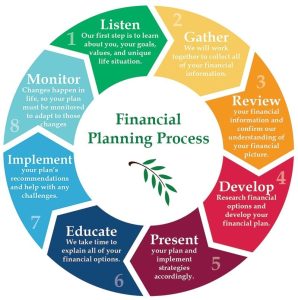
Navigating the Storm: Effective Strategies to Manage Business Finances in a Crisis
In the face of an economic crisis, businesses are often confronted with significant challenges that can impact their financial stability. Unforeseen events, such as pandemics, recessions, or market fluctuations, can disrupt cash flows, reduce consumer demand, and create uncertainties that threaten the very existence of a business. However, with careful planning, strategic decision-making, and prudent financial management, businesses can weather the storm and emerge stronger on the other side.
This article explores essential strategies for managing business finances during a crisis.
Assess and prioritize expenses:
When a crisis hits, it’s crucial to promptly assess your business’s financial health. Start by creating a comprehensive overview of your income, expenses, and outstanding debts. Closely scrutinize every expense to identify non-essential items that can be reduced or eliminated temporarily. Prioritize expenditures that are critical for sustaining operations and meeting immediate obligations.
Negotiating with vendors, landlords, and lenders for flexible payment terms or reduced rates can also help alleviate financial strain.
Strengthen cash flow management:
Cash flow is the lifeblood of any business, particularly during a crisis. Enhance your cash flow management by closely monitoring accounts receivable and implementing efficient invoicing and collections processes. Consider offering incentives for early payments or exploring alternative financing options, such as short-term loans or lines of credit, to bridge cash flow gaps.
Additionally, managing inventory levels and negotiating favorable terms with suppliers can help optimize working capital.
Review and adjust your budget:
During a crisis, it is crucial to review and adjust your budget to align with the new economic realities. Take a hard look at your revenue projections and revise them based on conservative estimates. Identify opportunities for cost savings without compromising quality or service. Adjust marketing and advertising expenses to focus on cost-effective channels, such as digital platforms.
A leaner and more flexible budget will provide better control over your finances in turbulent times.
Preserve and leverage existing resources:
Rather than rushing into drastic measures, explore ways to maximize the use of your existing resources. This may involve cross-training employees to handle multiple roles, reducing reliance on external consultants, or optimizing the utilization of equipment and assets. Encourage innovation and creativity within your team to find new revenue streams or identify cost-saving opportunities.
Additionally, leveraging technology can streamline operations, automate processes, and reduce overhead costs.
Stay connected with customers and suppliers:
Maintaining open lines of communication with your customers and suppliers is crucial during a crisis. Understand their challenges and work collaboratively to find mutually beneficial solutions. Consider offering flexible payment options to customers facing financial difficulties, which can help foster goodwill and customer loyalty.
Establishing strong relationships with suppliers ensures timely deliveries, preferential terms, and potential cost savings.
Seek professional advice:
In times of crisis, seeking professional advice can be invaluable. Consult with accountants, financial advisors, or industry experts who can provide expert guidance tailored to your specific circumstances. They can offer insights on tax strategies, funding options, government assistance programs, and other financial matters that can help stabilize your business.
Managing business finances during a crisis requires agility, foresight, and disciplined decision-making. By assessing expenses, strengthening cash flow management, reviewing and adjusting budgets, preserving resources, staying connected with stakeholders, and seeking professional advice, businesses can navigate the storm and emerge resilient. Remember, crises can also present opportunities for innovation and growth, so it’s important to maintain a long-term perspective while adapting to the immediate challenges.
With prudent financial management, businesses can not only survive but also thrive in the face of adversity.


